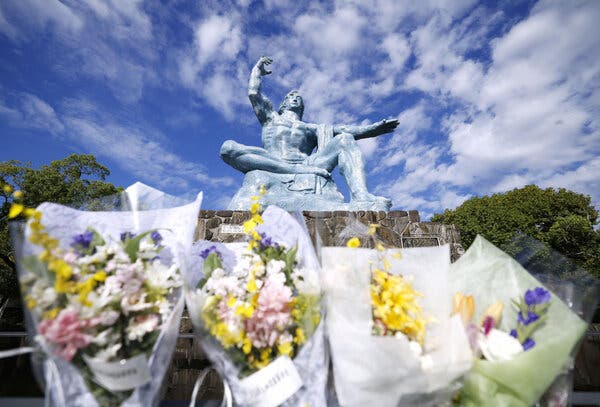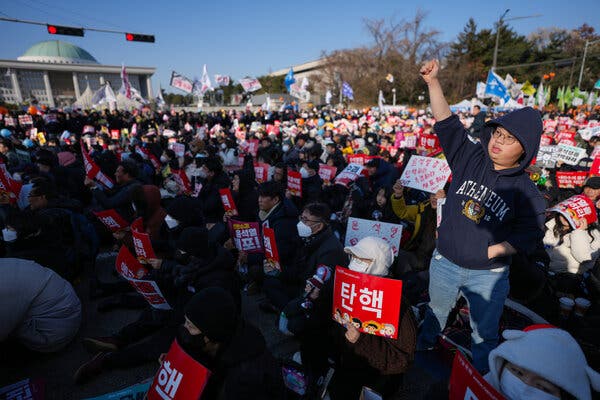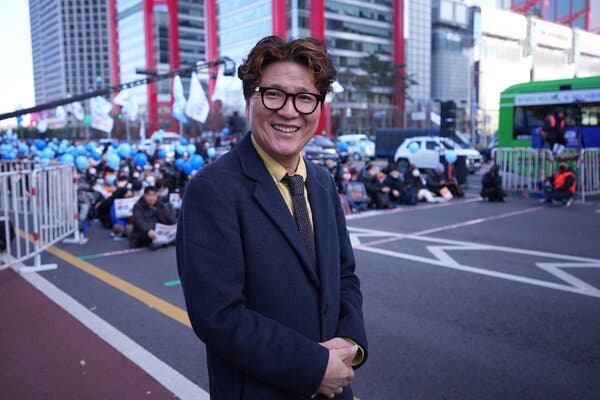Those who lived through the nuclear attacks of 1945 have dedicated their lives to recounting their experiences of loss and the physical and emotional toll.

Some 200,000 people were killed when U.S. forces dropped atomic bombs on Hiroshima and Nagasaki in the summer of 1945, leveling large swaths of both Japanese cities. But many more survived, some with life-changing injuries, others bearing the terrible emotional scars of the devastation and death they had witnessed.
Those survivors became known as “hibakusha,” which translates as “bomb-affected people.”
Japan recognized about 650,000 survivors in the wake of the war, but as the decades pass, the number still living has dwindled, and many of those who remain are now in their 80s. About 114,000 are still alive, according to Nihon Hidankyo, the grass-roots organization that received the Nobel Peace Prize on Friday.
Many of the survivors have dedicated their lives to recounting their stories of loss and excruciating physical and emotional injury. Their powerful testimony has contributed to a broader understanding of the profound devastation of nuclear war. This year, The New York Times’s Opinion section wrote about the survivors.
Nihon Hidankyo, established 11 years after the end of World War II, began as an organization representing the survivors of the atomic bomb who continued to suffer not only the physical effects of radiation but also the social stigma associated with the war.
Nihon Hidankyo is the only nationwide group of those survivors in Japan, with members in all of the country’s 47 prefectures. In the decades since its founding, the group has sent survivors around the world to share their experiences of living with the effects of radiation exposure from an atomic bomb.
“Humanity must never again inflict nor suffer the sacrifice and torture we have experienced,” the group said in its founding statement in 1956.
During the ceremony for the 2005 Peace Prize — given to the International Atomic Energy Agency, which monitors nuclear capabilities and reports to the United Nations — the Nobel committee also mentioned Nihon Hidankyo and the hibakusha for their work in campaigning against nuclear warfare.
Megan Specia reports on Britain, Ireland and the Ukraine war for The Times. She is based in London. More about Megan Specia
Lynsey Chutel is a Times reporter based in London who covers breaking news in Africa, the Middle East and Europe. More about Lynsey Chutel



